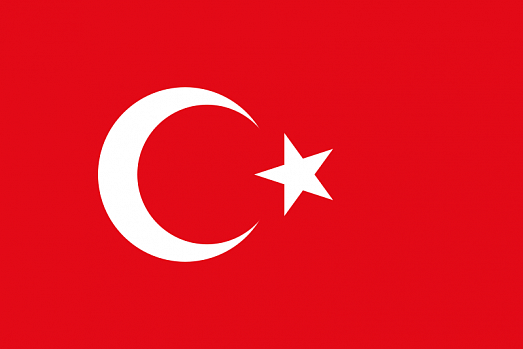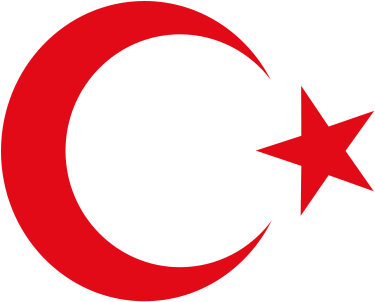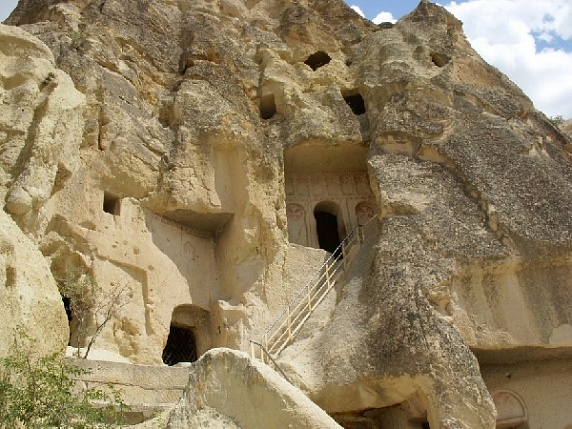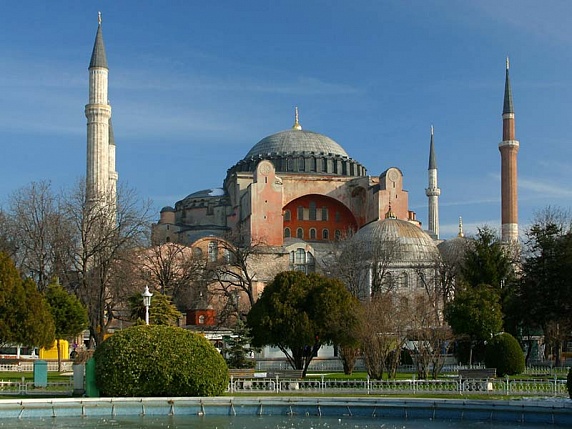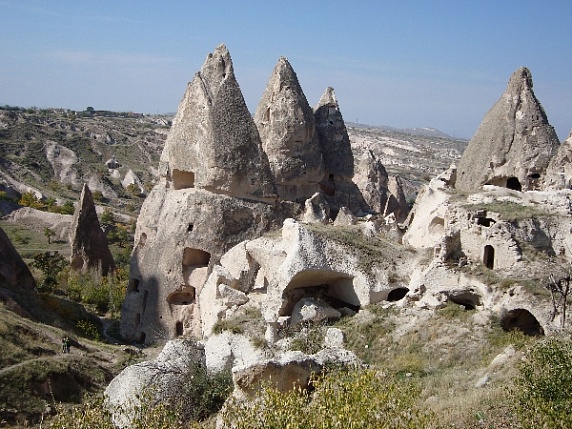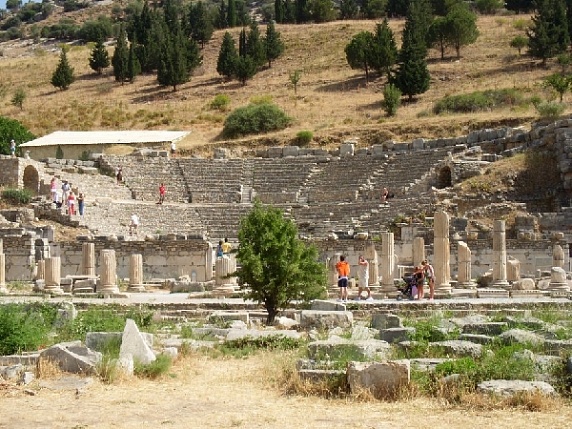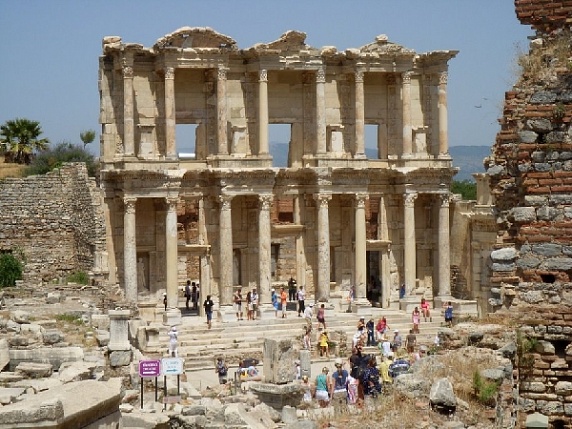 Türkei
Türkei
Statement and Answers by Russian Foreign Minister Sergey Lavrov to Questions from Mass Media at a Joint Press Conference with Turkish Foreign Minister Ahmet Davutoglu Following the Second Meeting of Turkish-Russian Joint Strategic Planning Group, Moscow, January 25, 2012
Ladies and gentlemen,
We held the second meeting of the Joint Strategic Planning Group. This mechanism headed by Russian President Dmitry Medvedev and Turkish Prime Minister Recep Tayyip Erdogan was created following the decision of the High Level Cooperation Council. The Russian-Turkish strategic dialogue in the framework of the group under the co-chairmanship of the Foreign Affaires Ministers was dedicated to elaboration of approaches based on convergence of positions in order to determine perspectives of our cooperation.
Since the previous meeting in Istanbul 2011 under the aegis of the Joint Strategic Planning Group, there have been more than twenty meetings and consultations. Today we examined the results of our work and approved the joint statement covering all aspects of bilateral interaction. We consider this statement to be the foreign services' contribution to the preparation of the third meeting of the High Level Cooperation Council scheduled for the second half of 2012. The Mixed Intergovernmental Russian-Turkish Commission on Trade and Economic Cooperation and the Social Forum definitely have to make their contribution. Their meetings are also to be held this year prior to the leaders' meeting.
Today during the consultations we noted that the trade and economic ties between Russia and Turkey had successfully and actively developed. The last year trade turnover is expected to reach the record figure of more than 31 billion dollars. An active work is being carried out to implement the project of the construction of the South Stream pipeline and the first Turkish nuclear power plant in Akkuyu. We think that the implementation of the above mentioned projects will allow to come considerably closer to reaching the goal set by Russian President Dmitry Medvedev and Turkish Prime Minister Recep Tayyip Erdogan, i.e. to increase the trade turnover between our countries in the coming years to 100 billion dollars.
Along with the economic interaction, we noted the successful development of the contacts in the area of military and technical, humanitarian and tourism cooperation. At the end of the last year there was one more record: 3.6 million Russian tourists visited Turkey.
We paid great attention to the current items of the regional and international agenda. Our countries have rather similar and even the same approaches to the problem of the further development of the Black Sea region cooperation, searching the ways to stabilize the situation in the Balkans and the Transcaucasia. We also actively cooperate on the Central Asian issue.
In a constructive and confidential manner we discussed the matters related to the events in the Middle East and Northern Africa. We are considering this situation in the context of all the aspects arising in this vitally important geopolitical region. Our discussion showed that the Joint Strategic Planning Group had proved to be a useful mechanism. We, together with our Turkish friends, are interested in deepening our interaction in this framework in every way possible.
Question (to both Ministers): It is a known fact that the positions of Russia and Turkey on a lot of international questions are the same or very similar. What are the common points of the countries' approaches to Iran and Syria, and what are the differences?
Sergey Lavrov (responds first): As far as Syria is concerned, our fundamental approaches are essentially the same. We certainly call for an end to violence, wherever it comes from. The League of Arab States, by the way, shares this viewpoint. We stand for a peaceful settlement of the situation in Syria and would like foreign actors to promote this exact scenario. We are also against any outside military intervention. Today we had a very detailed discussion on the ways to implement these basic principles. There are no easy decisions yet in sight. We have agreed to carry on with the dialogue. We will remain in contact with the other countries that wish to help settle the situation in Syria peacefully, and work with all the Syrian factions. We are in a relatively advantageous position with regard to those on whom the crisis settlement depends, and we will try to make use of it in a coordinated way.
Our views on Iran virtually coincide, too. Russia and Turkey support the exclusively diplomatic path to resolve the Iranian nuclear issue. Both Moscow and Ankara would like to resume the negotiations on the Iranian nuclear program between the Five plus One group and Tehran as early as possible, and work extensively to create necessary conditions for this. Russia, as a member of "the six", actively promotes the modernization of the approaches that the group formulated three years ago and presented to Iran. Turkey makes efforts to help with organization matters, for example, it offered to hold the next round of talks in its territory. We fully support this.
Question (to Ahmet Davutoglu): Turkey gives broad economic and diplomatic support to Syrian "liberation forces". Why does this seem acceptable to you, while Turkey itself expresses strong discontent over other countries supporting Kurdish movements?
Sergey Lavrov (in addition to Ahmet Davuloglu's response): In the matter of where to hold the dialogue between various Syrian forces, we will welcome any choice that would be suitable for everybody. If the opposition does not want to go to Damascus, we could choose Cairo where the League of Arab States has its headquarters, or the territory of the Russian Federation or Turkey. Collective encouragement from the international community for all the parties to sit down at the negotiating table is very important. We have to dissociate ourselves from armed groups that are obligated to stop the violence in compliance with the Arab League initiative. This process should be mutual. It is essential that all the members of the international community act in unison urging the parties to renounce the use of force and start negotiating.
I want to make one clarification. My friend Ahmet Davutoglu mentioned that the Turkish embassy in Libya had not been closed. The Russian diplomatic mission in Tripoli had also been constantly working.
Question: Will Russia again submit the draft resolution on Syria to the UNSC? If so, with what changes, and if without changes, why?
How would you comment on a call by the Arab League for the President of Syria Bashar al-Assad to resign? Will the resignation of Mr Assad contribute to the peaceful settlement in Syria?
Sergey Lavrov: Russia is not going to again, as you put it, "submit" the resolution to the Security Council because it did not disappear anywhere from it and is on the negotiating table. Consultations on our project continue.
We are open to constructive proposals, which will be in line with the objective of ending any violence. And for this purpose, we will exert influence upon everyone who today uses weapons in Syria. The second goal is to oblige everybody to assist in the fastest possible beginning of an inclusive dialogue between all Syrian forces. The third and very important aspect: we will not be able to support the proposal for retrospective approval by the UN Security Council of unilaterally imposed sanctions against Syria taken without any consultations with Russia, China, and other BRICS countries. This is an inequitable and counterproductive approach.
At first one needs to have consultations and elaborate a common position and then make any decisions. Unilaterally devised sanctions do not help the cause. This is also confirmed by many other situations in the world. Finally, the fourth, essential element of the Security Council resolution is a clear statement that it cannot be interpreted to justify any external military intervention in the Syrian crisis. We consider such approach to be balanced and fair unlike attempts to adopt unilateral resolutions condemning only one side and thus encouraging the other to increase confrontation and intransigence. We saw that in the situation with Libya, and we will not allow the "Libyan scenario" to recur.
As for your second question, we firmly believe that the inclusive dialogue between all Syrian forces should be started without preconditions. We proceed from the fact that all participants of such dialogue will be guided by the aim of achieving harmony and show responsibility for the fate of their country and people.
